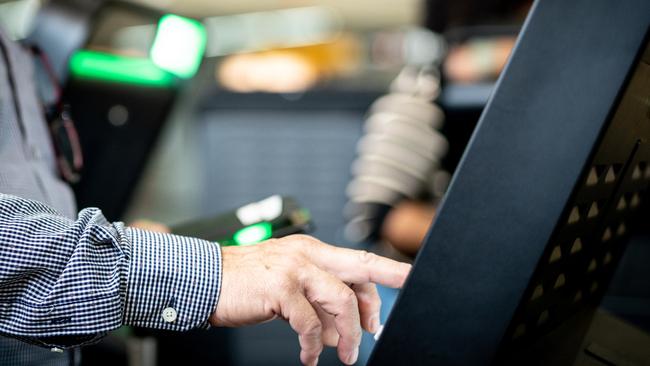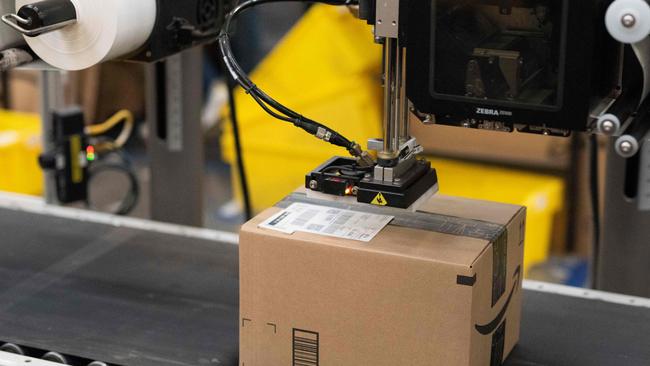‘The robot apocalypse is coming — and they will take our jobs’
Secure, well-paid jobs are slowly evaporating and being replaced by electronic and digital alternatives. But if we don’t take action soon, our economy will be ruined, writes Mark Morey.
Rendezview
Don't miss out on the headlines from Rendezview. Followed categories will be added to My News.
They say if you put a frog in cold water, and slowly turn up the heat, it won’t notice it’s being boiled alive.
It’s a pretty macabre experiment, and I don’t recommend trying it at home. But you don’t have to, because the same scenario is happening right now in the Australian economy. Only this time, it’s Australian workers who are the frogs.
Secure, well-paid jobs are slowly evaporating as the heat rises from automation privatisation, and globalisation. And if we don’t take action soon, our economy will be cooked.
The impacts of these trends are all around us. Remember when you actually used to get service at a service station? When supermarkets had check-out operators? When there was such a thing as an Australian-made car?
Jobs that used to be the backbone of the Australian economy have been drifting offshore for decades, and manufacturing jobs that haven’t been outsourced to other countries have been largely replaced by machines.
Automation is now doing the same to the services sector, all while government services are being slashed and those that remain are being handed over the private sector – which in turn cuts even deeper in order to extract more profit.
As offshoring, automation and privatisation continue to chew up the jobs market, we end up with more people competing for fewer positions. This means higher levels of unemployment and underemployment, and lower wages – even when the statistics say that the economy is growing.

Economists have a name for this phenomenon – it’s called “the Great Decoupling”. Until the 1980s, it was considered a golden rule of economics that increased GDP and increased labour productivity went hand-in-hand with growth in jobs and wages.
Since then however, GDP and labour productivity have continued to rise across major first-world countries, but employment and wages haven’t. In other words, economic growth and jobs have been decoupled, and workers are getting less of the pie than they used to.
This isn’t what we were promised. Free markets were meant to create jobs – not destroy them. Technology was meant to give us more time to do fun, meaningful things – not push us into poverty. In reality, the many wonderful benefits of the technology revolution have been offset by an increase in inequality.
The combination of economic neoliberalism and rapid technological change has delivered for the privileged few, creating winner-take-all markets where tech giants like Amazon, Google and Facebook have created virtual monopolies with enormous advantages over everyone else. These mega-companies are financially bigger than many countries, and arguably more powerful. Meanwhile, more people are having to work two or three jobs just to make ends meet.
It should come as no surprise then, that a recent survey found that the Australian public have given up on the utopian dream of a leisure-filled life.
The survey of over 1,000 Australians – conducted by YouGov, and commissioned by Unions NSW – found that an overwhelming expectation that automation would decimate employment. In fact, 81 per cent of respondents to the survey believed that automation will replace much of the work now done by humans within 30 years.
Furthermore, 72 per cent agreed that companies are expecting employees to work longer hours.

Of course, that doesn’t mean we should ditch technology and go back to the stone age. But it does means that we have to think carefully about how we structure and manage our economy in a hi-tech world.
And the solutions may be hiding in plain sight. For example, 66 per cent of respondents to the YouGov survey agreed that it should be illegal for employers to require employees to work unpaid overtime for jobs paying less than $100,000.
67 per cent of respondents also said that a “job guarantee” (to ensure all adults could be provided with a job paying the minimum wage) was a good idea.
Banning unpaid overtime and providing a stronger safety net are just some of the options for changing the way our economy operates, and tilting the balance back in favour of humans.
Giving workers greater bargaining power in the workplace, by removing restrictions on the right to strike, would also help take the handbrake off wages.
But ideas like this first require a fundamental change in the mindset of our politicians – away from small government conservatism and towards a more ambitious style of governing.
Australian workers have been blanched, but were not boiled yet. That’s why the robot apocalypse itself should not be our biggest fear.
Our biggest fear should lie in the failure of political leaders to confront the crisis of the Great Decoupling.
Now is not the time for more timidity in politics. We need courageous leaders and strong, interventionist governments, who are prepared to put the needs of people before the demands of corporations.
Mark Morey is the Secretary of Unions NSW.
